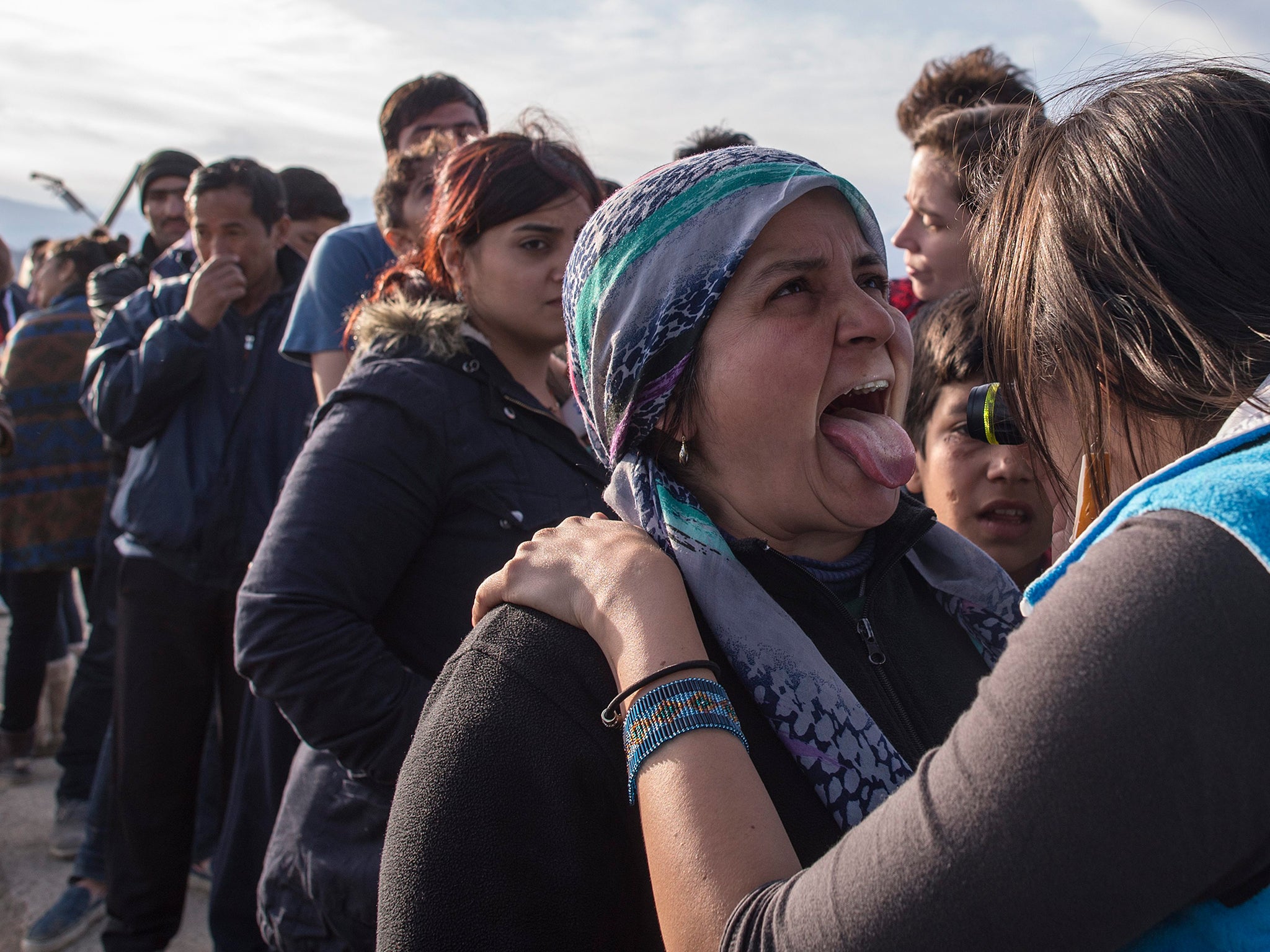Medecins Sans Frontieres worker recounts bitter struggles faced by refugees in Greece
The time I’ve spent in northern Greece will stay with me forever

Your support helps us to tell the story
From reproductive rights to climate change to Big Tech, The Independent is on the ground when the story is developing. Whether it's investigating the financials of Elon Musk's pro-Trump PAC or producing our latest documentary, 'The A Word', which shines a light on the American women fighting for reproductive rights, we know how important it is to parse out the facts from the messaging.
At such a critical moment in US history, we need reporters on the ground. Your donation allows us to keep sending journalists to speak to both sides of the story.
The Independent is trusted by Americans across the entire political spectrum. And unlike many other quality news outlets, we choose not to lock Americans out of our reporting and analysis with paywalls. We believe quality journalism should be available to everyone, paid for by those who can afford it.
Your support makes all the difference.I arrived in Idomeni, northern Greece, two months ago, feeling apprehensive about the size and nature of the challenge that lay ahead. As a Health Promotion Manager for Médecins Sans Frontières/Doctors Without Borders (MSF) I have worked in cholera epidemics, with ebola and in conflict areas like Central African Republic and South Sudan, but I knew this posting was going to be different. I now realise that I was right to be nervous – every day brings something unexpected.
I essentially have two jobs. People in the camp have been registered by the Greek government and have permission to travel across the country. I have to make sure that they get the healthcare they need. I also listen to their stories and try to find answers to their questions; this is as much a crisis of information as it is a humanitarian crisis.
My other job is to work with the people who do not have permission to leave in the country and in most cases have no option but to turn to smugglers. Unable to access any services here in Greece, they are extremely vulnerable, desperate and suspicious. They tend to hide in barren forest near the border, 10km away from the camp. I am the sole link between this vulnerable group, the MSF medical workers and the teams distributing food and organising shelter. I have to try to gain the refugees’ trust, which at times feels like an impossible task. The smugglers can sometimes prevent us from helping them. I feel ashamed that Europe has completely turned its back on them and is acting as if they don’t exist.
One of the hardest days I’ve had was around a month ago. The police were holding thousands of people at a gas station 20 km from the main camp to try to reduce the number of people at the border. The temperature was minus 10, and thousands of people were sleeping unprotected in the open. Children were being put to sleep on the frozen ground or in the luggage holds of buses, and bus drivers were charging people to sleep inside their vehicles. I met a mother who was sleeping on the ground with her 11-day-old baby. I couldn’t believe I was in Europe.
I have also seen Greek police kicking, pushing and screaming at Afghan refugees, including women and children, who were refusing to get on a bus that was supposed to take them back to Athens. The refugees didn’t understand why they couldn’t cross the border. They wanted to stay in the north of Greece and continue their journey. MSF teams waited with the group of refugees, hoping that nothing really bad would happen as long as we were there. An Afghan man with his children came over, took my arm and looked at me, begging me for help and protection. I could see the desperation in his face. That was the closest I came to crying. I will never forget his face and the feeling of being so useless.
On 29 February, I saw Macedonian police fire teargas into a crowd with children. In my three and half years working in humanitarian aid, it was one the most shocking things I have ever seen. So many of these people have fled war, bombs and gunshots – you could see the terror on their faces as these explosions brought back traumatic memories they had tried to escape. A mother in the waiting room of our clinic lay crying on the floor while her six-week-old baby was treated for inhalation of teargas. A four-year-old girl from Syria lay unconscious inside our clinic for 45 minutes after the gas attack. Doctors are sure this reaction was psychological trauma from her experiences in Syria. These people all came to Europe seeking safety and protection.
I am due to leave Idomeni at the end of the month. I already feel anxious about leaving, because there is still so much to do, but I know that I will be replaced. I’m scared of what may happen, of how much more desperate it may become for people, and of what the impact may be on their health. This may turn out to be one of the biggest crises of our time. The most infuriating thing of all is that it could have been avoided, if Europe had reacted with compassion instead of deterrence, if we had provided a welcome for people instead of building walls. There’s one thing that I am sure of: that the time I’ve spent in northern Greece will stay with me forever.
Aude Khalfouni is Health Promotion Manager for Medecins Sans Frontieres
Join our commenting forum
Join thought-provoking conversations, follow other Independent readers and see their replies
Comments